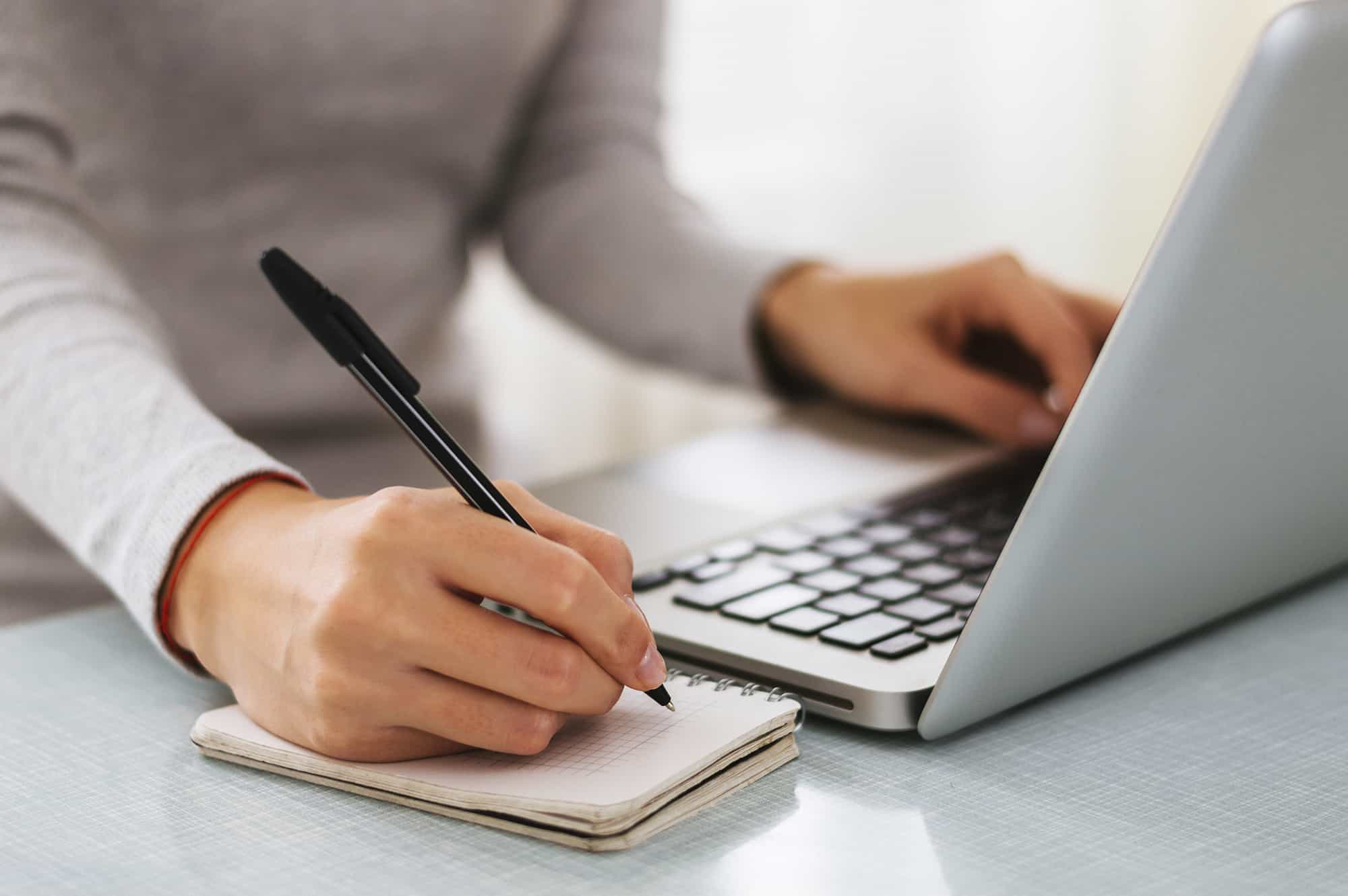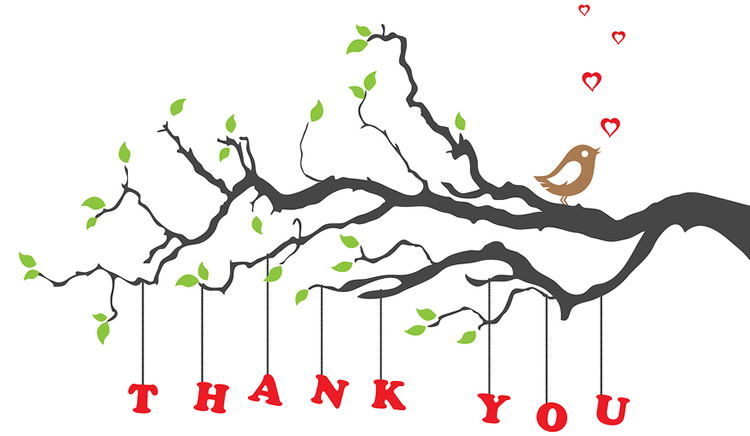Be well informed about your destination…
Get informed about the country, the history and culture. The more you are aware, the easier is your understanding of the local specificities.
A good prior information make you:
- Go deeper in your discoveries of historical and natural sites.
- Establish an easy-going contact with the inhabitants.
- Experience the culture in good conditions.
- Avoid behaviors and dress style that may appear inconvenient to your hosts, while selecting clothes which will be comfortable as well as decent in the local point of view.
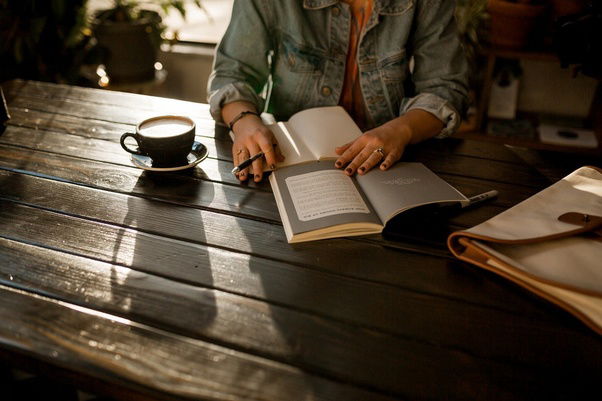
Think while shopping before travelling…
During your travel shopping, think to the impact your product may have on the local environment, especially if you spend some days in wild nature. Try to limit the use of non-biodegradable packing that you may leave on spot.
Remember that the solar oils do not dissolve in water and constitute a screen on the water surface which affects negatively the photosynthesis of the marine plants. Better choose solar creams and in general select biodegradable body-care products.
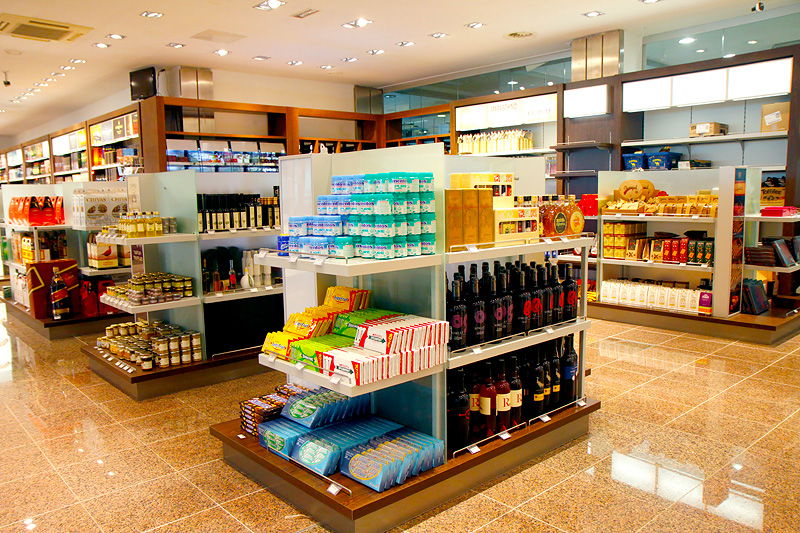
When you interact with locals…
Try to let aside the biases that we may have about a culture, a mentality or a religion, in order to adopt as much as possible a fresh look when you are in the country. Be smiling, cheerful and patient, even if you are in an uncomfortable situation. The smile is an international human signal that doesn’t need words and may generate a lot of sympathy for your respect.
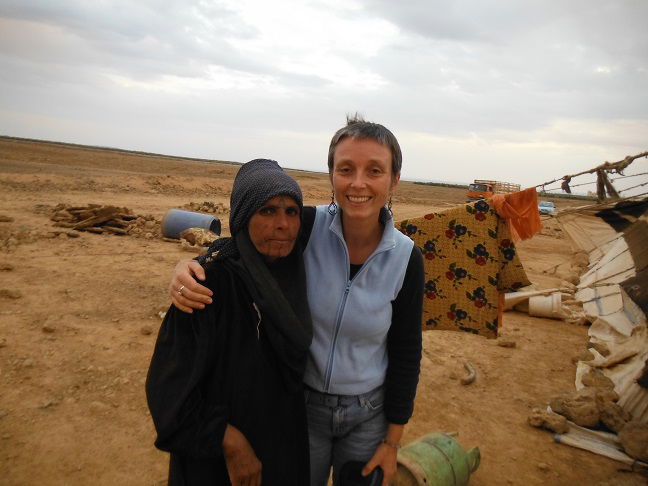
If you are accommodated in homestay…
Social codes are sometimes different from our Western habits. You cannot be spontaneously aware about them, so try to compensate this eventual gap with clear, open and smiling attitudes. Express widely your gratitude for the dedication of your hosts. They will be extremely happy if you express the pleasure you have to be with them. Largely compliment the meal you are offered, even if your taste is not completely adapted.
Use water with extreme parsimony and observe the habits of your hosting family. The homes are generally equipped with a water roof tank that is getting filled up once weekly or every two or three weeks depending on the areas. The supply may be very irregular. Indeed watch closely your water consumption, even if you are kindly offered to take showers for your well-being.
Avoid giving tips, money or gifts for the local families you are in contact with. This kind of practices imbalances human relationship, creates jealousy among local communities and harms the image of the Western traveler. If you wish to help a family you have met, please contact us and we will see together the best way to proceed.
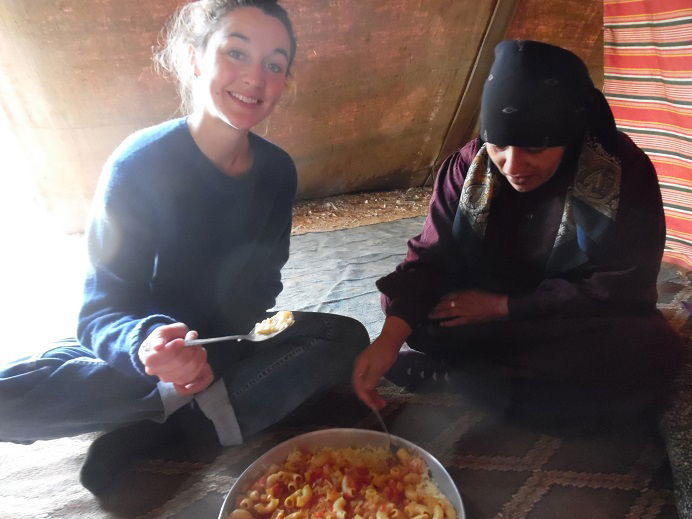
If you would like to support people…
First share with us your intentions, as we integrate such aspects in our initiative. Do not foresee goods distribution for the locals without to previously inform us, even school pencils. Direct support to the population must be evaluated and coordinated, and may be subject to a special request to the official authorities. If you are interested for a social activity, visit this page.
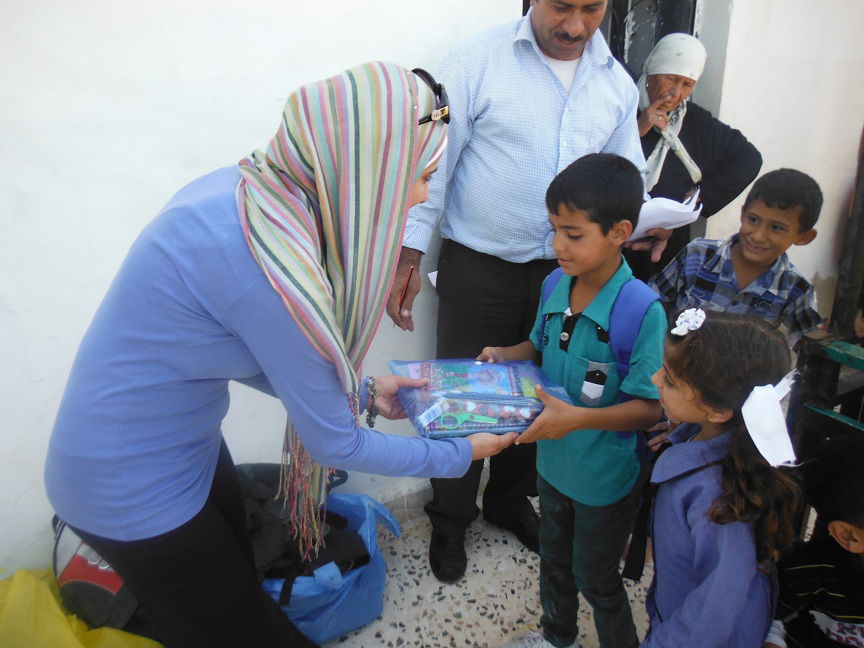
In front of working children...
In some places, tourism has unfortunately induced child labor. Do not buy trinkets, donkey rides or any other services from children as this attitude would encourage a pernicious system that maintains children away from education and a healthy development. Child labor is extremely harmful not only for the children but also for their whole communities. Abstain from offering them money with the idea of helping them or supporting their family.
In the context of a homestay, the hosting of travelers in local families should not induce any work for the children. Would you notice such a case, kindly refer to us.
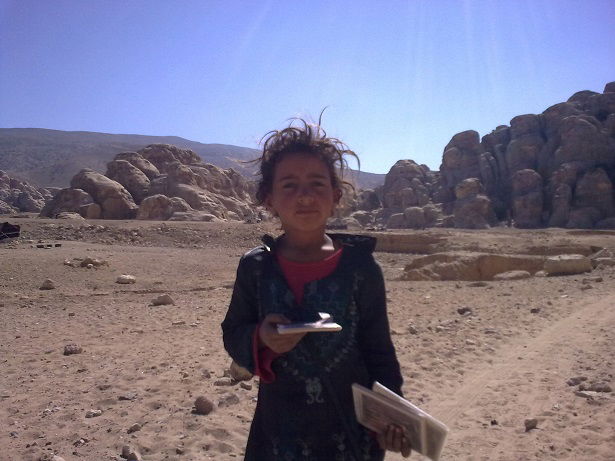
Taking pictures…
Avoid taking picture of people without having previously asked their accordance, especially concerning the women. Do not insist if you suspect a refusal, even very discreet.
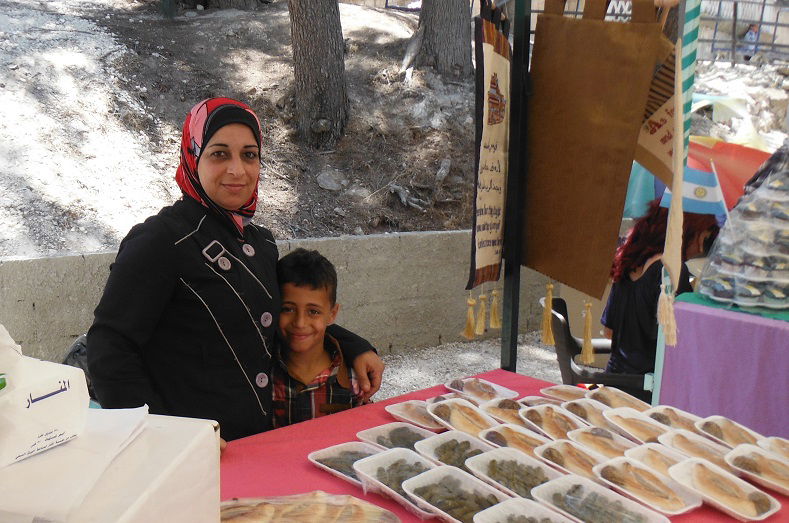
If you use an animal…
Chose an animal able to carry comfortably your weight and do not overload it. Use one donkey per person, even if you are with a child. If you have to pass stairs or a steep track, get off the animal and walk, and this especially in you ride a donkey in Petra. Riding up and downstairs is harmful for the animals, dangerous for the rider and damaging for the stairs.
Carefully waive using an animal in poor condition. In case of a long ride, be concerned about the hydration of the animal.
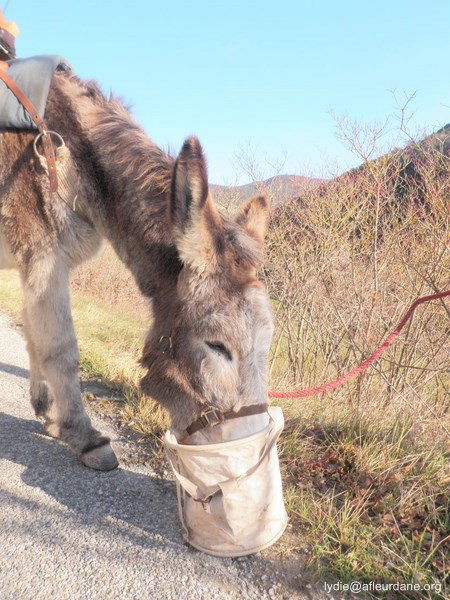
On archaeological site and heritage places…
It is strictly prohibited by law to collect archaeological material, whatever it is. We may be sometimes surprised to find on the site a large quantity of pottery shards, mosaic tesserae or, in case of a desert expedition, cut flint stones deposits. You can take as many pictures as you want, but please do not pocket anything. All those objects, even tiny, are part of our cultural heritage.
In Petra, avoid taking away or buying colored stones, take pictures instead. The constant and regular sales of colored stones in Petra finally spoil the geological and archaeological heritage of Petra.
Avoid touching, stepping or laying on monuments, especially in Petra where the stone easily erodes. Do not use donkeys to climb upstairs. Petra stairs date back to the Nabataean times and the regular passing of loaded donkeys totally laminates the monuments.
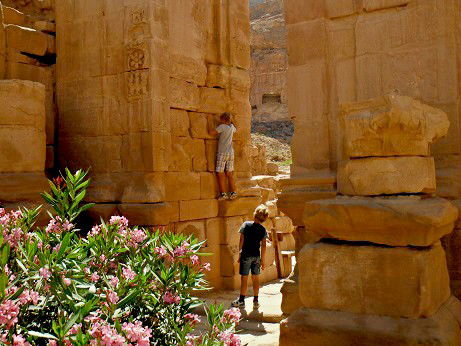
Visiting cult places…
Be respectful while visiting cult places and follow the required dressing code. Even on an archaeological site or during a desert expedition, avoid leaning, sitting or stepping on burials, even extremely ancient or barely visible.
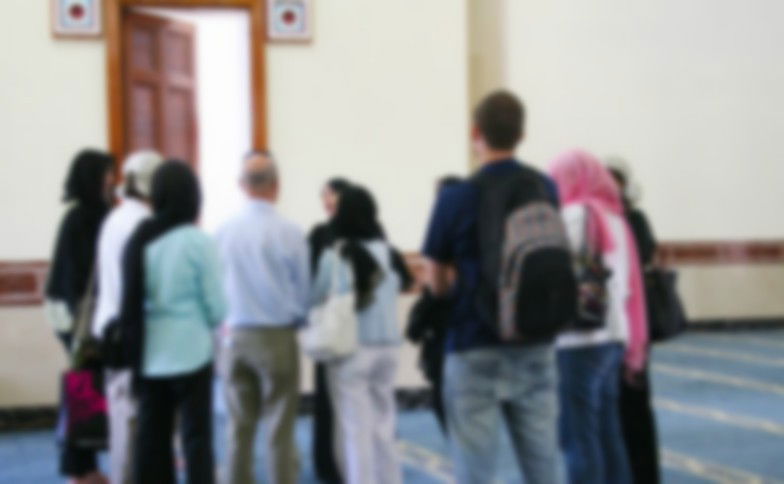
Purchasing local products and souvenirs…
Do not hesitate to negotiate the price of your purchases. Avoiding this habit will encourage abuses. In your negotiation, if the price seems too high, indicate the right price for a similar product in your country, in order the merchants keep the sense of the realities.
Abstain from buying archaeological objects, true or fake. Especially in Petra areas, the tourists are offered to buy objects potentially found on the sites (coins, small potteries, monument pieces…). Manufactured copies also represent an issue: buying such products contributes to encourage wild digging practices. Moreover, as they are illegal and not certified, you may expose yourself to troubles when passing borders with such objects in your luggage.
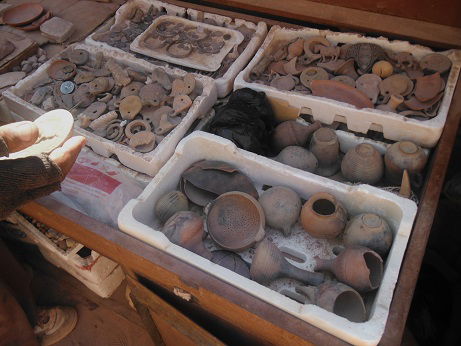
At hotels…
Most of hotels have a little chart for encouraging eco-responsible attitudes, especially for water saving. Kindly follow them. Avoid letting the lamps switched on when you are not in your room.
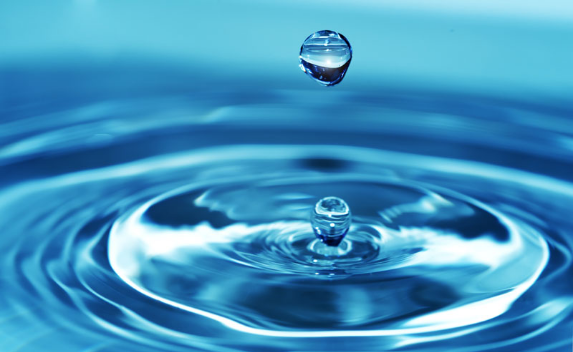
Care about environment…
The lack of local awareness regarding the ecology and environment protection may surprise you, while you are requested to make many efforts to minimize the impact of your stay. Initiatives start emerging in Jordan, but the way is still long for reaching a general movement. A better awareness can rise during interactions and interchanging with the travelers, who benefit from better information in their origin countries. The case happening, you can very kindly explain to your interlocutors your point of view, how you do for acting in a responsible way and show them examples. Alternatively, you can also share with us your observations and we will see how we can act at different levels for improving the situation.
When hiking, avoid touching or collecting plants, even if you are out of a specific natural reserve, in order not to affect the balance of local ecosystems, but also for your own security. Some plants may be toxic without you can suspect it (especially desert plants).
Respect the recommendation in the natural parks and reserves. If you have the chance to see wild animals, do not attract them with food and do not scare them hoping to see them better.
Do not throw your cigarette butts on the ground to prevent fires and for the environment protection (a cigarette butt takes 15 years to degrade, pollutes 500 liters of water and contaminates the nature with thousands of chemical products). A pocket ashtray is the best solution.
Keep with you a bag for collecting your trashes in natures. We encourage you to also collect, when possible, some decay you may see during your hikes. All those little gestures contribute to protect our planet! In Jordan, wastes can be found till difficult to access areas, as they are drained by winter floods and wind. Nobody will collect them, unless careful hikers as you!
Take care to bring back with you harmful decay as that cannot be recycled in Jordan. As much as possible, opt for rechargeable batteries.
Avoid fun activities generating CO2 as quad or water ski. Opt for clean sports as hiking, horse or camel riding.
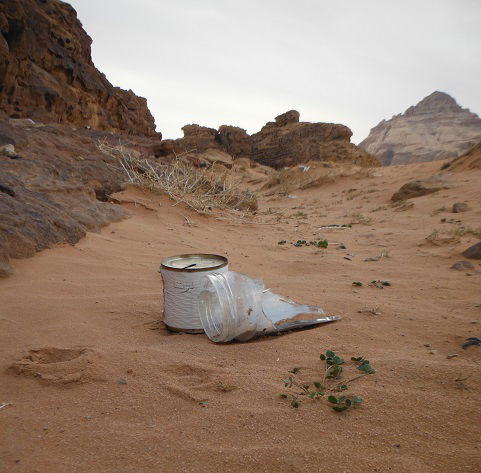
Back to home…
We encourage you to share with us your comments and suggestions. You are maybe coming from a country which is more advanced and experienced in the environmental protection, so we are interested in hearing your point of view and responsive to your suggestions.
